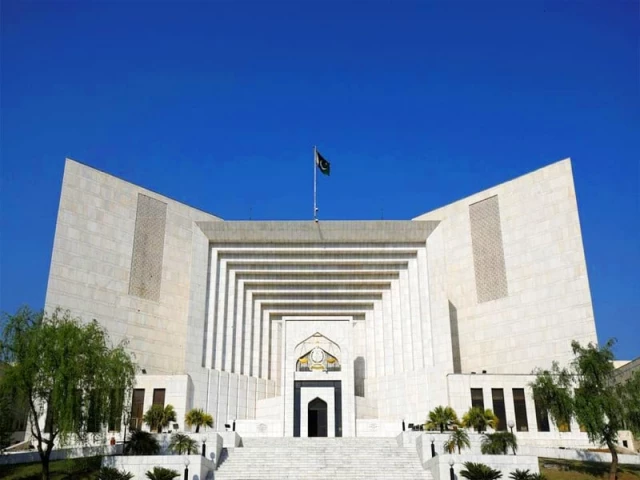Islamabad:
The Supreme Court has decided that the Federal Board of Revenue (FBR) must maintain taxpayer’s dignity while taking tax recovery measures.
A nine-page judgment written by Justice Ayesha Malik, who rejected FBR’s petition against a Supreme Court order noted that a message seeking recovery on the same date as its issue would defeat the very goal of establishing a date and would make legal protection meaningless. “Another aspect that is important is the constitutional underpinning of section 140 of the regulation.”
The order observed that the requirement of notice before recovery is not only statutory, but reflects the wider guarantees of proper process and fair trial under Article 10a of the Constitution and the right to dignity under Article 14.
Courts have consistently maintained that even in tax matters, recovery must be performed in a way that respects the individual’s dignity and legal protection measures. Therefore, even when the law allows forced recovery, it must therefore be carried out in a way that retains taxpayer’s dignity.
The verdict was handed down by a three-judge bench by the point of view, led by Justice Munib Akhtar, who examined two core questions: Whether an FBR Commissioner may require immediate payment the same day as a notice is issued in accordance with section 140 of the Income Tax Regulation or whether the Regulation requires a future date of compliance.
FBR’s position was that immediate recovery is permitted in accordance with section 140 without obligation to issue a subsequent notice or give a specific payment date.
However, the judgment found that section 140 does not allow immediate forced recovery in the absence of a due date. When interpreted in context, the provision requires that any party that keeps money on behalf of the taxpayer will be issued a message that clearly specifies a deadline for deriving liability.
In his extra note, justice Shahid Waheed said a significant question for the bench was the intersection of tax law and taxpayers’ rights.
“In a legal framework that advocates fundamental rights – such as the right to a fair trial, access to justice, right to dignity and proper process,” he noted.
He asked a critical question: Whether there is any sound reason to maintain a culture of authoritative dominance in tax collection?
“This study challenges existing norms that often prioritize tax recovery over the rights and protections guaranteed taxpayers potentially undermine the very essence of justice. It also invites a thorough investigation into the delicate balance to be maintained between effective recovery of tax debts imposed by the law and it is necessary to protect the rights of those who are taxed.”
Justice Waheed further reflected on the Spirit in Sections 137, 138 and 140, comparing the ideal recovery process with a honeybee: “When you go into depth in the provisions of sections 137, 138 and 140, it becomes clear that the law prescribes a recovery process which, like a honeybee, collecting nectar from flowers without causing pain to the plant to mandates that tax reigns perform taxes collection and improvement in a way that provides a way of collecting nectar from flowers without causing pain to the construction of taxpayer with dignity and respect, (b) strict adherence to established legal protocols and procedures and (c) Delivery of transparent guidance and explanations to taxpayers.
When he outlines the procedural journey, he noticed, “How is it? This becomes clearer when we break down the stages involved in the introduction of SKAT, which consists of three phases. The first phase involves the declaration of tax liability that indicates the financial obligations of the taxpayer.”
Subsequently, the second phase includes the assessment process describing the exact sum that the taxpayer is legally required to pay. “Finally, if the taxpayer does not fulfill this obligation voluntarily, the third phase introduces the recovery methods to be used.”
When he emphasized the precedence of dignity, he emphasized: “The right to dignity is the most central of all fundamental rights, as it is the source from which all other rights are derived. The regulation aims to create a balance between ensuring tax recovery and maintaining the taxpayer’s dignity.
Justice Waheed also observed: “The lack of verifying whether the ‘amount to be paid’ had been classified as’ tax before declaring the taxpayer (the respondent) as a defaulter – and subsequently issued a direct payment message to the person who had money on behalf of the taxpayer (the respondent) – community and negatively influence one’s business reputation. ”
He warned against oppressive collection practices. “No legal standards can justify the culture of authoritative dominance in tax recovery as it basically undermines the central principles of justice. This creates an imbalance between the need for effective tax recovery and the protection of taxpayers’ rights.”



